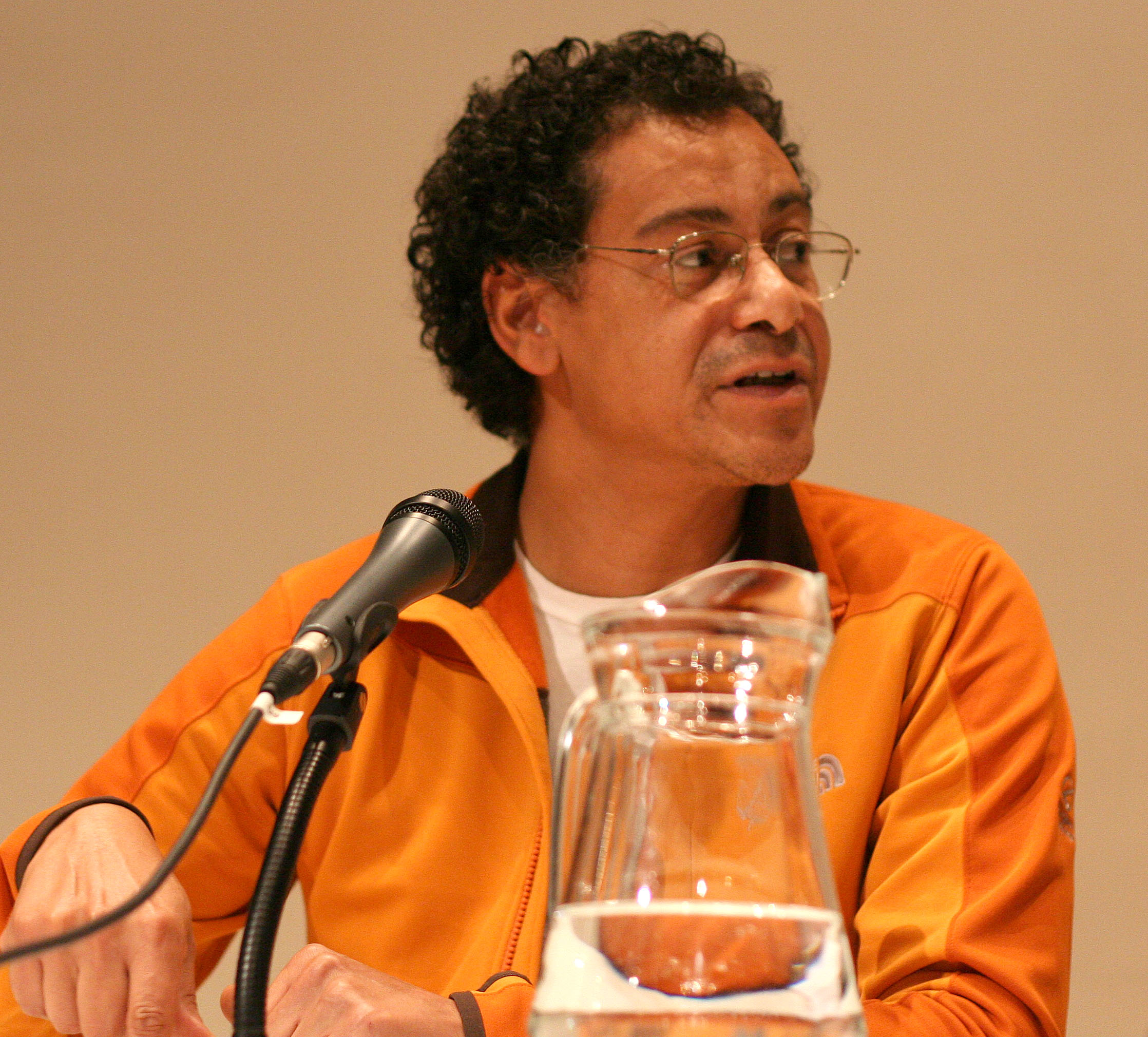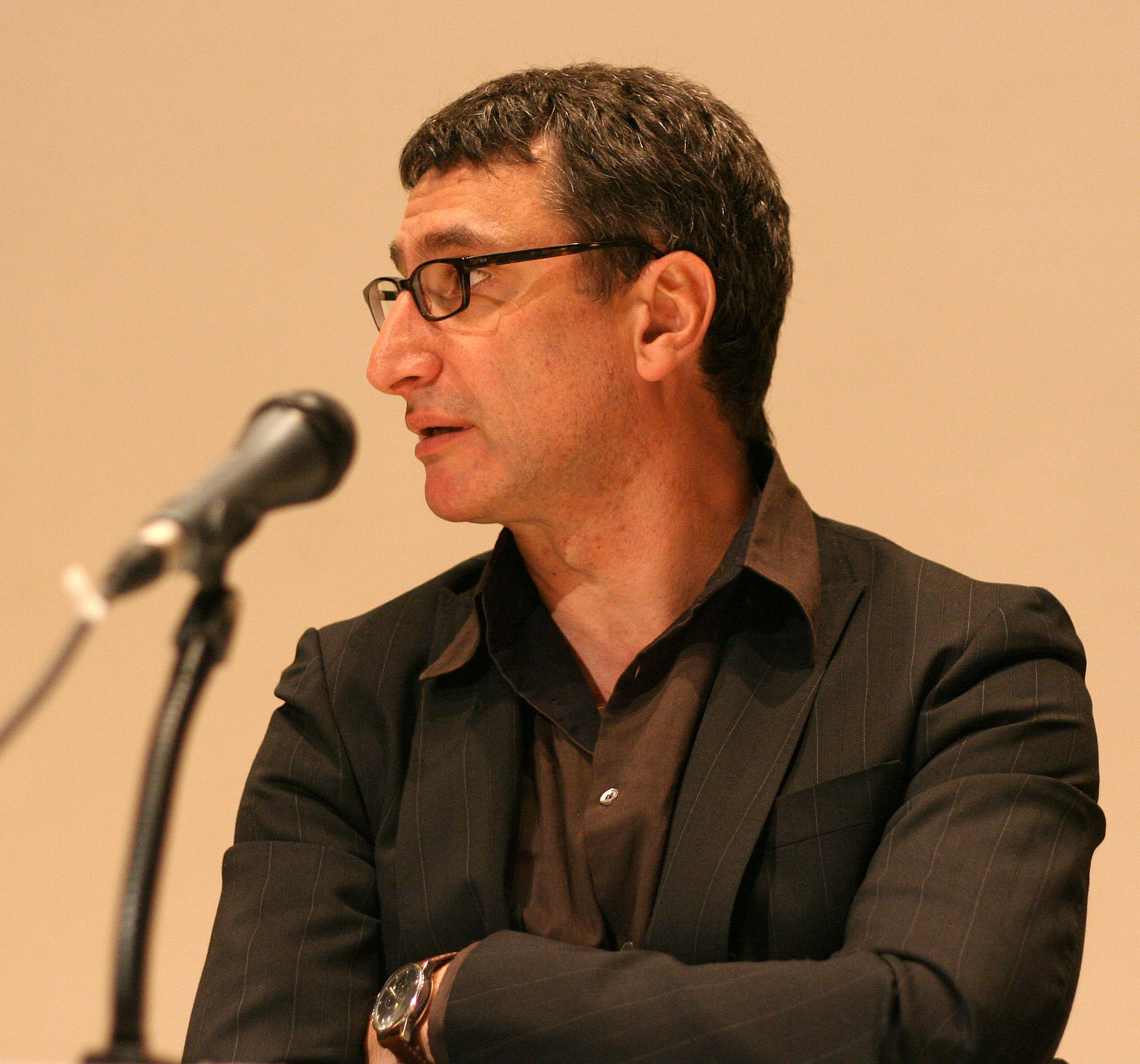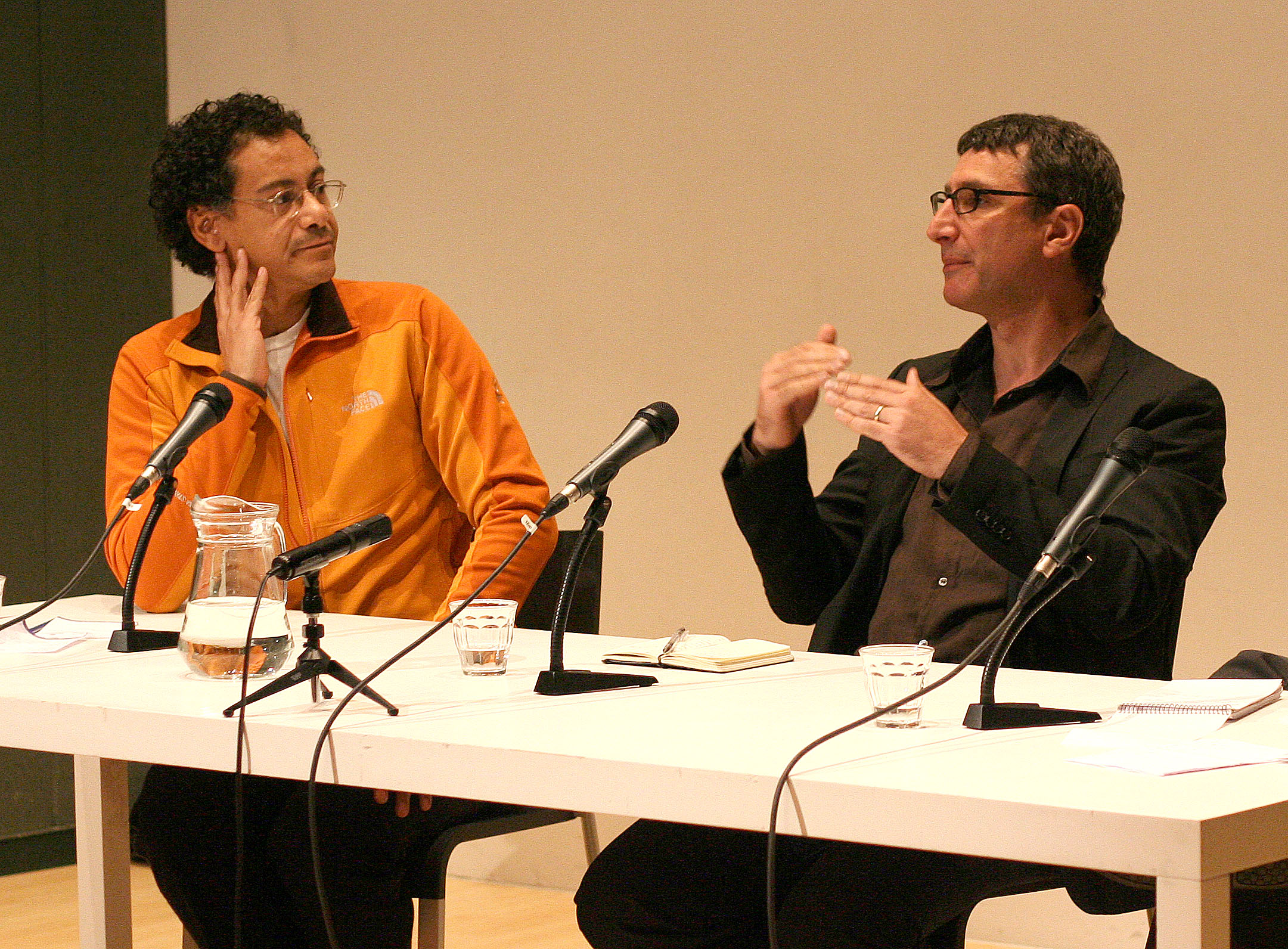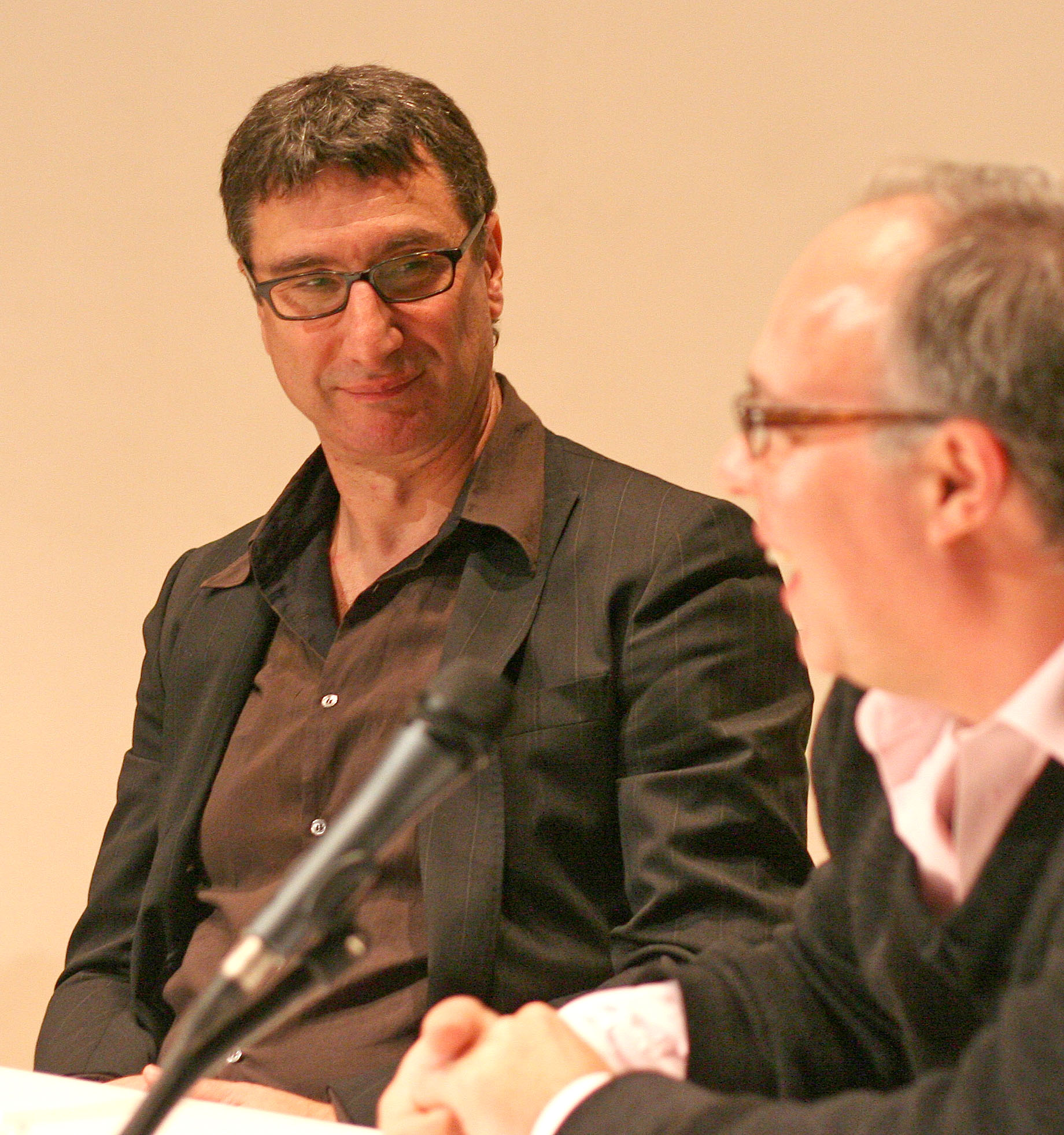
 This last Sunday begins with a conversation between Kobena Mercer and Nikos Papastergiadis. The subject, and they keep to it quite well, was Face and Facelessness and Place and Placenessless of the Other. Both got the opportunity to state their opinion about this before Charles Esche would, as he hoped, shape it into a dialogue.
This last Sunday begins with a conversation between Kobena Mercer and Nikos Papastergiadis. The subject, and they keep to it quite well, was Face and Facelessness and Place and Placenessless of the Other. Both got the opportunity to state their opinion about this before Charles Esche would, as he hoped, shape it into a dialogue.
Kobena Mercer starts with complimenting the project Be[com]ing Dutch. He continues with an explanation on how he will speech. As an introduction he speaks about his latest production and says he will speak from two starting points to keep it all understandable.
Kobena Mercers first point is the build-in amnesia institutions use when it comes to post-colonialism history and diversity followed by it. “Inclusi on is a part of the problem. We need all colonials and post-colonials for a dialogue about diversity.”
on is a part of the problem. We need all colonials and post-colonials for a dialogue about diversity.”
Secondly, he asks about the definition of the ‘other’. “We shouldn’t have had filled the blanks with known identities while we left unknown out. A cosmopolitan figure is someone with no loyalty to a state, but a cosmopolitan person is a framework for rethinking identities. Why is loyalty necessary? Can you be loyal to more states?”
In between, as examples, he shows different books that he has co-worked on. “Discrepant abstraction, about how every book has a different theory about diversity. Exiles, diasporas and strangers, about returning to the object instead of its background.” There are more examples, book titles and examples from his own experiences. “But I realise I’m taking too much time.” Kobena Mercer finishes with what he thinks is of importance: “Do not judge a cultural element by its origin but by how it travels.”
 Nikos Papastergiadis also thanks for the invitation but asks if maybe next time it could be done somewhere Mediterranean. His introduction is a lot more personal. Nikos Papastergiadis wrote a piece this morning as he felt bad about not sleeping in. Because last night there was a goodbye party and he went there. With some apologies to others (“Sorry Dick but Dutch modesty was not necessary”) he continues about his family history. How his parents moved to Australia and his settling there and his college time at Cambridge. “I thought there were people from the entire world there, but it was only Commonwealth. Today there are people from outside the Commonwealth. And maybe we do not like what we have to say to each other, we still talked.”
Nikos Papastergiadis also thanks for the invitation but asks if maybe next time it could be done somewhere Mediterranean. His introduction is a lot more personal. Nikos Papastergiadis wrote a piece this morning as he felt bad about not sleeping in. Because last night there was a goodbye party and he went there. With some apologies to others (“Sorry Dick but Dutch modesty was not necessary”) he continues about his family history. How his parents moved to Australia and his settling there and his college time at Cambridge. “I thought there were people from the entire world there, but it was only Commonwealth. Today there are people from outside the Commonwealth. And maybe we do not like what we have to say to each other, we still talked.”
About the identity of the ‘other’ he says the following. “In the past we knew who to hate and fear. We knew how those people looked, talked, acted and we knew why we hated them. Today it’s different. We in Australia are supposed to fear ‘illegals’. But what do they look like? Where are they from? Who belongs in and who belongs outside borders?”
Charles Esche likes to continue by questioning one another about the things said. The identity of the new others return, close reading what Shepherd Steiner talked about in a earlier panel and how does the contemporary view at immigrants agree or disagree with the post-colonial view?
Kobena Mercer and Nikos Papastergiadis not always agree, but the atmosphere stays nice and respectable. They laugh when Kobena Mercer opts that history should not exist and Nikos Papastergiadis says they might make a good team. “But not in a talkshow”, Kobena Mercer answers. Charles Esche ends it and gives room for questions. There were only four of those and all four complimented the two on their speeches.